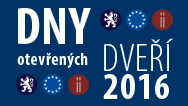Important days
20. 6. 2010
World Refugee Day
The most important resource of the international refugee law is the United Nations Convention Relating to the Status of Refugees – so-called Geneva Convention (it was signed on 28 July 1951 in Geneva and came into force on 22 April 1954).
The "Refugee" is according to this document a "person who, owing to well-founded fear of being persecuted for reasons of race, religion, nationality, membership of a particular social groups or political opinion, is outside of the country of his nationality and is unable or, owing to such fear, is unwilling to avail himself of the protection of that country".
The Geneva Convention guarantees to refugees basic human rights which should be at least the same as freedoms that are enjoyed by aliens living legally in a given country, and in many cases they should be the same as freedoms of citizens of a given country.
In the Convention there are stated rights of refugees, apart from other things freedom of warship and movement, right to work, right to education, and right to the access to travel documents but there are also highlighted obligations of refugees towards the host country. One of crucial provision states that refugees must not be refouled to such countries where they could fear of persecution.
 On 3 January 1967 the Protocol relating to the legal status of refugees was signed in New York; this document removed certain restrictions contained in the Convention. According to this Protocol especially Europeans affected by events that had occurred before 1 January 1951, could ask for the refugee status. Altogether 144 states acceded to the Convention or to the Protocol, including the Czech Republic (the Convention and the Protocol were published as a Notification No. 208/1993 Coll.).
On 3 January 1967 the Protocol relating to the legal status of refugees was signed in New York; this document removed certain restrictions contained in the Convention. According to this Protocol especially Europeans affected by events that had occurred before 1 January 1951, could ask for the refugee status. Altogether 144 states acceded to the Convention or to the Protocol, including the Czech Republic (the Convention and the Protocol were published as a Notification No. 208/1993 Coll.).
The Office of the United Nations High Commissioner for Refugees
The most important office established for refugees at the international level is the Office of the United Nations High Commissioner for Refugees – UNHCR. During its nearly sixty-year existence, the UNHCR has helped millions of people, who had to unwillingly leave their homes, to start new life.
Their number is gradually growing. While at the beginning of its activities, the UNHCR was helping about one million people in need, nowadays there are 40 million in the world who had to escape because of a war conflict or persecution. They live in exile as refugees or they are searching safe sanctuary at their home country but in a different place from their previous home. Many of them live out of their homes for years, sometimes for tens of years.
Populist politicians and media in advanced countries often highlight the "flood" of refugees, but in fact the number of people asking for asylum in advanced countries is stabile. The highest price is, on the contrary, paid by poor host countries which can hardly afford it. About 80 % of all refugees, including internally resettled people, live in developing countries. The idea that flood of refugees is flowing into advanced countries is a myth" says the United Nations High Commissioner for Refugees Antonio Guterres.
Refugees themselves often care for coming back home soon. If the security situation allows that, the UNHCR support them in their decision. If it is not possible, there are several solutions, e.g. integration in the country which granted asylum as the first one or resettlement to a third country. Also the Czech Republic newly belongs among countries which are involved in the resettlement programme of the UNHCR.
If you asked refugees about their strongest desire, most of them would answer that they are longing to return homeor to restart their lives in the country which granted them asylum. Their wish is to find peace and security, to have a possibility to make their living, to see prospects for themselves and for their children. Refugees face the future courageously and with hope. The topic of this year's World Refugee Day therefore remains: "They took my home but they cannot take my future".
The websites www.unhcr.cz/wrd will keep you informed on refugees in the Czech Republic and in the world as well as on the World Refugee Day.
As far as competences are concerned, issues relating to refugees fall into the scope of activities of the Ministry of Interior. Further useful information can be found at http://www.mvcr.cz/clanek/azyl.aspx.
Last but not least, the situation of refugees in the Czech Republic is also monitoring by the Government Representative for Human Rights and also by the Committee for Rights of Aliens working in the framework of the Government Council for Human Rights. They are striving in particular after improvement of legislation relating to aliens, including refugees, and making their lives in our country easier.
Members of the Committee for Rights of Aliens are also representatives of non-government organizations involved in the issues relating to refugees, for example the International Organization for Migration (IOM) or the Organization for Aid to Refugees (OPU) and the Counselling Centre for Refugees.
On Friday 18 June and Saturday 19 June the fifth year of the multicultural happening RefuFest aneb PřijdeSvátek organized by the civic association Berkat will be held on the Kampa Island in Prague.
Thus, Kampa will become for two days a place for meeting of people loving varied world and its cultures. The main objective of the event is to acquaint the Czech public with life of aliens in the Czech Republic, their culture, traditions and to enable those who have come to our country to find their new homes, to be actively involved in the integration process.
All photographs are published with kind permission of the UNHCR.









